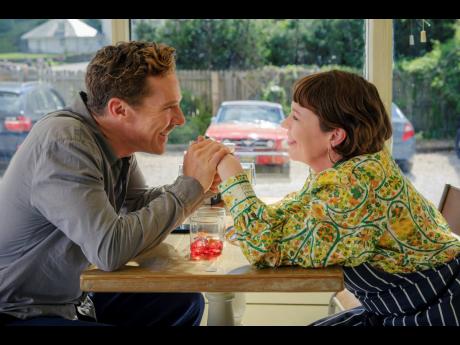‘The Roses’ – Love, hate and laughs
Romance films will often be unabashedly romantic about love, and realism doesn’t really factor into the equation. In The Roses, for the couple Theo and Ivy, it was love at first sight. They found in each other a kinship that was explosive, burning with passion. The movie begins at the midpoint of their relationship, where that white-hot intensity transforms into incinerating scorn.
It’s a great hook for a movie that only becomes more intriguing as the couple seems genuinely head over heels for one another. The film details their initial meeting that sparked what soon becomes a forest fire, and the breakdown that follows. You get an insight into a couple that struggles to match intention with execution. One scene depicts Theo repeatedly telling himself to be pleasant as his wife walks through the door despite his feelings of resentment, a feat he is unable to accomplish.
The Roses has many moments that show you who the characters are to themselves and each other. They grow and change over the course of the film while still unable to shake the people they are at the beginning of their story. All of this is played wonderfully by co-leads Benedict Cumberbatch and Olivia Colman, who give their characters incredible depth, in a way that can be painfully relatable for anyone faced with similar situations.
The film is based on the book and film The War of The Roses, but only really features warring actions between the couple in the last 20 or so minutes. Instead of all out combat, the film takes a death by a thousand cuts approach. Colman and Cumberbatch are up to the task, changing their characters little by little as one would, having experienced decades of unspoken resentment. When they do get to let loose, it’s as cathartic to the audience as it is the characters, and it’s where the films absurd humour sensibilities get to shine as their cruelty to one another is brought out in exceedingly creative ways.
What’s frustrating about The Roses is that much like its characters, it seems at war with itself. At times, it can be a fascinating study of heteronormative unions, analysing the harsh reality that gender roles create for individuals who don’t quite fit into the boxes they’re meant to. Then the film will cut to one of its side characters for an absurd gag. It can be hard to sit with the movie’s ideas when it seems so intent on distraction. Still, even at its worst, the engaging moments are humorous, and at its best, it’s beyond compelling.
Rating: High Half Price
Damian Levy is a film critic and podcaster for Damian Michael Movies.

